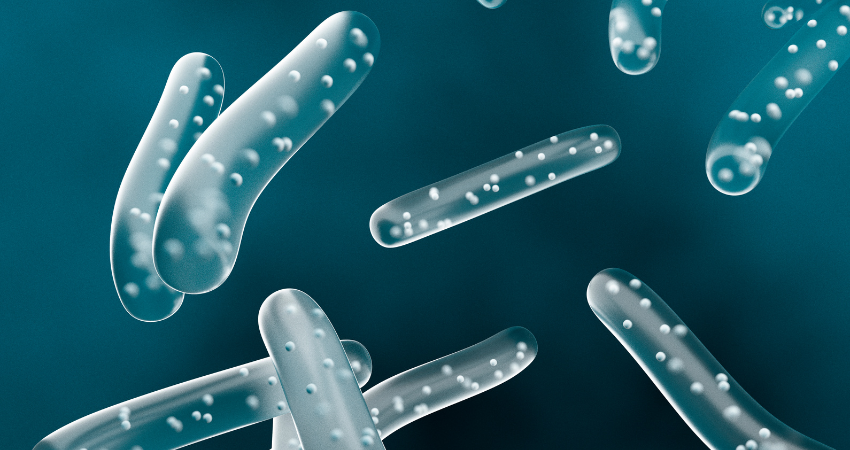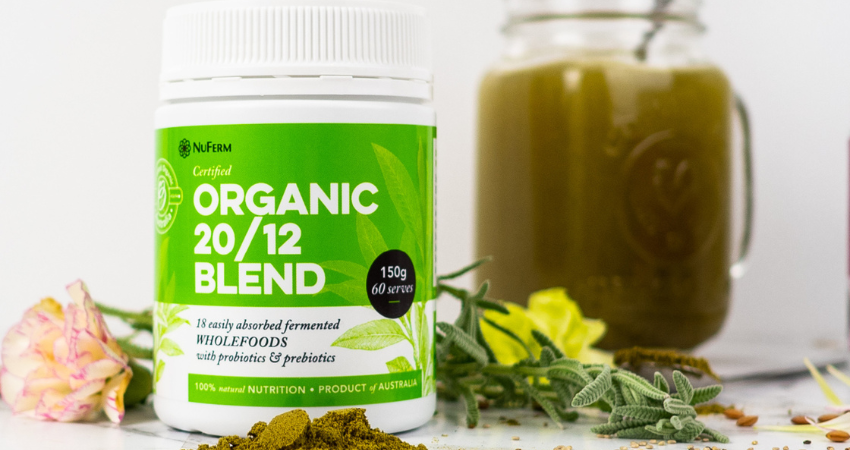Probiotics are the good bacteria that live in your body. They help keep your digestive system healthy and they're important for fighting off infections and diseases. You can find probiotics in supplements or foods like yogurt, kefir, kombucha, sauerkraut and even pickles.
We read about probiotics all the time. We know they are meant to be good for us, but do we really know what probiotics are? How do they work? When is the best time to take probiotics? Well, we did a little research for you so that, at the end of the day, you have a better understanding of the importance of probiotics when it comes to gut healing. In this article we'll talk about how probiotics work in your body, how to use them safely and what side effects might happen when using them. Let's start with probiotics definition.
A probiotic by definition is a living microorganisim introduced into the digestive system for beneficial effect. In supplemental form, probiotic formulations are grown in a lab from benefical bacteria and although some contain traces of dairy you can buy vegan probiotics (non dairy probiotics), such as NuFerm Certified Organic Blends.

If you're new to probiotics, you may not know exactly what they are. Probiotics are live bacteria and yeasts that are good for your health, especially your digestive system. They help keep the body balanced by producing enzymes that aid in digestion and stimulate the immune system. As a result, probiotics can improve immunity (this includes respiratory infections), allergies, asthma symptoms, eczema and psoriasis flare ups by boosting the immune system. Probiotics also help with weight management; those who consume probiotics have been shown to have lower body fat levels than those without them in their diet! Probiotics can be helpful for people who have a weakened immune system or are recovering from surgery or an illness like cancer treatment. Probiotic rich foods include coconut yogurt, coconut kefir and products like fermented vegetables such as pickles; miso soup broth; tempeh soybeans fermented with grains like rice or barley.
Probiotics are often called "good" or "helpful" bacteria because they help keep your gut healthy. They do this by:
Probiotic for gut health is a typical course of remedy when you experience any of the above conditions, however probiotics may also have benefits for other parts of your body, including your immune system and even your mood.
You can find natural probiotics in fermented foods and yoghurt with probiotic cultures. The best source of probiotics include foods such as kefir, sauerkraut, kim chi, apple cider vinegar and natural coconut yoghurt. They work by stimulating the growth of the body’s own beneficial bacteria. For this to happen, there are a number of influential factors that need to be considered. The first is that like all living things, probiotics and bacteria in general need ‘food’ to survive. This food is what we call ‘prebiotics’ and comes in the form of resistant starch. This non digestible fibre passes through the digestive tract, latching on to beneficial bacteria, allowing it to colonise and make a home in the gut. Without prebiotics, the beneficial bacteria would not survive, and probiotics would simply pass through the digestive tract, providing temporary symptomatic relief only.
A healthy digestive system stems from a diverse number of beneficial bacteria in the gut. Unfortunately, there are many factors in our modern day life which kill off our good bacteria. This in turn leads to an overgrowth of bad bacteria and ill health. Things that will kill your beneficial bacteria include anti biotics, overconsuming sugar and fatty foods, alcohol, prescription and non prescriptions drugs.
Advantages of taking natural probiotics include repopulating good bacteria and helping the immune system along with most digestive symptoms. Supplements come in probiotics for adults, probiotics for children and even babies. Taking probiotics for constipation is a great natural remedy targeted at long term health. Probiotics with enzymes can provide additional digestive support particularly if you suffer bloating after food. These natural probiotics help replace good bacteria not found in processed food.
Probiotics are a great way to improve your child’s health and support their overall wellness.
Probiotics, or good bacteria, are essential to our health because they help keep our digestive system working properly, which is important for absorbing nutrients and keeping us healthy. They also allow us to maintain a healthy immune system and protect us from harmful bacteria. Children with weak digestive systems may struggle with constipation, diarrhea or gas - all signs of gut dysfunction. Probiotics for kids can help children who have compromised gut function because it helps promote “friendly” bacteria that helps break down foods in the stomach so they can be absorbed efficiently into the blood stream where they can be used by body cells.*
Now, let's look at the different types of probiotics.

The short answer is yes, however if you have never taken probiotics before, it is best to start off slow, as taking a high dose for the first time can cause temporary abdominal discomfort in some. Some of the best probiotics in Australia such as NuFerm organic probiotics are available in powder form and capsules and they recommend starting with 1 capsules per day for two days, then gradually increasing to 4 capsules per day. Or if you prefer NuFerm organic probiotic powders, it is recommended starting with 1/8 of a teaspoon and gradually increasing it to 1 teaspoon a day. This allows your body to get used to it and avoid any discomfort. Easily the best probiotic in Australia, NuFerm Certified Organic Woman Blend contains 20 easily absorbed fermented wholefoods with probiotic & prebiotics designed specifically for women.
There are a few side effects associated with taking probiotics that you should be aware of:
So long as prebiotics are being consumed daily, whether you take probiotics with or away from food comes down to personal choice and the direction of your health consultant. Clinically, before breakfast and before bed have always yielded the best results for me. NuFerm organic probiotics can be added to a green smoothie or sprinkled on meals. The best part - unlike many probiotics, NuFerm organic probiotics don't need to be refrigerated, so they are perfect for when you are travelling to ensure optimal gut health on your holidays.
Probiotics are great for your health. They can help you digest food, ward off infection and even fight off allergies! If you're looking to try probiotics, just remember that there are many different kinds available. You may need to do some research before deciding which one is right for you.
RECOMMENDED PRODUCTS